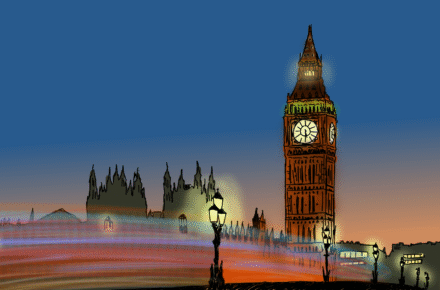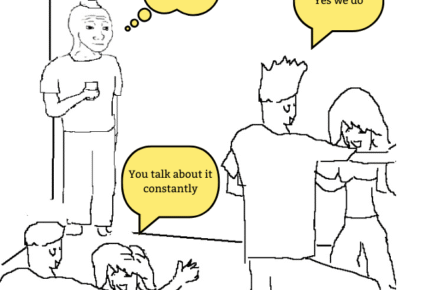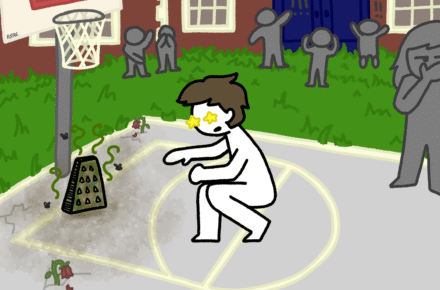Trigger Warning: Mentions of violence against transgender people.
Let’s talk about J.K. Rowling; author of the impossibly successful Harry Potter series, owner of a very cute dog and, of course, fresh-out-of-the-closet “gender critic” (aka TERF aka Trans Exclusionary Radical Feminist – aka transphobe if you are feeling particularly daring today).
That last bit is actually kind of old news at this point. Quite a few months have passed since Rowling first started raging about gender inclusive language on Twitter. Since then, her essay “TERF wars”, in which she carefully misconstrues what being transgender actually means, has won the BBC Russell Prize. Because apparently bigotry can do that now. The essay is a comprehensive summary of what Rowling believes – namely that trans women are dangerous predators, while trans men are confused girls fleeing from the patriarchy. Non-binary people? Well, I guess they just don’t exist.
There are, of course, more nuanced and empathetic breakdowns of the essay (check out ContraPoints on YouTube, if you’re interested), but dissecting it isn’t actually our mission today.
In fact, while Rowling has inspired me to write a lot of other things (mostly cringey Drarry fanfiction), my inspiration for this article actually came from Ralph Fiennes, who portrayed Lord Voldemort in the movies and said the following in one of his recent interviews: “I can’t understand the vitriol directed at [Rowling]. I can understand the heat of an argument, but I find this age of accusation and the need to condemn irrational. I find the level of hatred that people express about the views that differ from theirs and the violence of language towards others, disturbing.”
Let me just make it very clear that the “hate is not cool” part of the quote is not where Fiennes and I disagree. I’m sure that Rowling’s inbox has been filled with unpleasantness ever since she started going wild on Twitter. That’s not nice and certainly not helping anyone, so let’s stay away from it.
However, condemning the “vitriol, accusation and irrationality” directed at Rowling was quite a bold move on Fiennes’ part when TERFs, who Rowling sides with, generally aren’t known for being the most amicable of people. Let’s talk about Magdalen Burns, for example – a TERF, who Rowling calls “brave” and “hugely empathetic” towards trans people. Yet, when I look at Burn’s tweets, I cannot help but feel that Rowling’s description didn’t quite hit the nail on the head. It’s definitely not what comes to my mind when I read stuff like, “You are fucking blackface actors. […] Fuck you and your dirty fucking perversions.”
Was Burn brave and empathetic when she said that about trans women? Did she want to have the rational discussion Fiennes is so adamant about? Or doesn’t it somehow seem more likely that she wanted to be hateful and cause trans people pain?
Journalists, who generally know very little about trans people, take Rowling’s “outspokenness” as an invitation to publish article after article, calmly discussing what rights we, as trans people, do and do not deserve, what we can and can’t do to our own bodies and where we are and aren’t allowed to pee.
In this debate, my identity is reduced to newspaper headlines and column inches and best-selling books. I’m not someone who you talk with, but someone who you talk about, someone who is so very bad at thinking that others have to do it for them. I’m infantilised, incapacitated and treated like nothing more than an ideological phenomenon, a political problem that one lawmaker or another really ought to take care of.
People talk about my life as though it is an interesting intellectual discussion or, alternatively, a trivial question on the same plane as whether pineapple belongs on pizza. Either way, they don’t seem to think that their little debate will have any real consequences, even though, right now and right here in the UK, bills are being passed to keep trans kids from getting the support they need. Every day trans people tell stories about assault in bathrooms and bedrooms, but aren’t listened to because people in this debate – people like J.K. Rowling – portray them as vicious predators or confused toddlers, and because people like Ralph Fiennes think that that is okay.
The reality is that being transgender is not, and never will be, a debate. It is no controversy and it certainly cannot be explained away by essays – not even by award-winning ones.
I’m trans, right now, as I’m writing these words at 1:30am in the morning. I’m trans whenever I go to bed, far too late, and whenever I roll out of it at noontime. I’m trans when I buy myself a coffee and when I cook my dinner. I’m trans when I’m on the bus or on the toilet, when I’m sad or happy or frustrated and when I fall in love.
Transgender is something that I and countless others, like, maybe that hot guy in your zoom seminar or your future child, are every single second of our lives. If you stare at us, we notice. If you talk over us, we get annoyed. If you look away while transphobia wins awards and gains approval, we will suffer. Keep that in mind the next time J.K. Rowling and her “alternative views” pop into your Twitter timeline.
Anonymous
Header image: 211LA









